Rumen “Sali” Shopov is a master Turkish-Romani multi-instrumentalist, vocalist, bandleader, music teacher, composer/arranger, dancer, and drum-maker born and raised in the mahala (Romani neighborhood) of Gotse Delchev, a cultural crossroads town in the Pirin Mountain region of Southwestern Bulgaria. In addition to the vibrant musical life of the mahala’s Romani community, his birthplace hosts a rich intersection of Bulgarian, Macedonian, Greek, Jewish, and Turkish musical influences. Obsessed with music since infancy, Rumen was the pride and joy of a Romani family that loved to have relatives and neighbors over to sing and play music from sunset to sunrise. Rumen thus learned a vast and diverse repertoire in the local oral tradition.
By the age of 12, Rumen was already a professional working musician playing dumbek (goblet-shaped drum) and guitar in the popular band “Biljana” for local Roma, regional ethnic groups, and visiting Greeks. In 1978, Rumen was invited to join Gotse Delchev’s “Nevrokopski State Ensemble for Folk Songs and Dances” (est. 1946). State-sponsored ensemble work was the most respected employment for musicians in Communist Bulgaria, and state ensemble positions were extremely rare for artists of Romani heritage. In this group, Rumen’s talent and discipline earned him the advanced positions first of tambura (long necked folk lute) soloist and then of concertmaster while he was still a teenager. He collaborated with the ensemble’s music director, Petar Avramov, and its artistic director, the respected composer Zapryu Ikonomov, on arrangements for the orchestra and on ethnomusicological research in the villages around Gotse Delchev. Rumen was able to tour throughout Eastern and Western Europe, the Middle East, and Canada with the ensemble, an unusual privilege during the Cold War. At the same time, Rumen continued to play and record with the most popular bands of the mahala, “Orbita” and “Shturo Make”, while also taking up the esteemed community role of ceremonial tapan/davul (double-headed bass drum) player for three-day weddings and other life-cycle celebrations. In Gotse Delchev’s highly competitive multi-ethnic musical marketplace, Rumen became popular for his powerful playing, for his leadership, for his ability to negotiate both the Romani entertainment scene and the national Bulgarian music system, and for his versatile facility with a wide variety of local music styles.
The fall of Communism in Bulgaria in 1991 led to extreme economic hardship for musicians in Bulgaria who previously were supported by state ensembles, and/or lavish traditional Romani life-cycle celebrations in which musicians fueled the festivities. These circumstances forced Rumen to suspend his music career, leave Bulgaria and become an itinerant “guest worker” in various factories throughout Europe. In 2002, with the assistance of the Bay Area Balkan Music Community and Voice of Roma (a Bay Area non-profit organization dedicated to humanitarian aid for Balkan Roma, and the promotion of authentic Romani culture and culture-bearers), Rumen moved to the United States, where his career has flourished amid increasing demand for both traditional Romani and Balkan music.
Since emigrating to the USA, Rumen has toured and taught throughout the United States, Canada, and Latin America with many different ensembles comprised of Balkan and American musicians. Among his many collaborators are the Yuri Yunakov Ensemble, Balkan Stars, Romani Routes, Bulgarika, Esma Redzepova, Dzambo Angushevi, Ismail Lumanovski, Eugene Hutz (Gogol Bordello), Varimezovi Family Band, Edessa, Kitka, Anoush, Ziyia, Trio Slavej, Shuvani, Yuri Yunakov Ensemble, Ala Turca, and many others. He is currently the musical curator for BalkanFest/San Diego and Voice of Roma’s Herdeljezi Festival.
Rumen maintains an active teaching schedule coaching ensembles and private students at his home studio in Berkeley, CA and at educational institutions and camps throughout the Americas. He has served on the faculty of the California Jazz Conservatory, East European Folklife Center’s Balkan Music and Dance Workshops, The Kitka Institute, Balkanalia; the Kosmos, World, Stockton, Lark in the Morning Folk Music and Dance Camps; Arcata Folk Festival, the San Francisco Kolo Festival, and has taught workshops at UC Berkeley, University of Texas at Austin, University of Oregon, and New England Conservatory, and elsewhere. Bay Area bands he has mentored include Brass Liberation Orchestra, Inspector Gadje, Orkestar Sali, Brass Menazherie, Fanfare Zambaleta, and Meraklii.
In 2006 Rumen released of “Soul of the Mahala” a disc of traditional and original music featuring performances by Rumen, his son Angel Shopov, and Romani musicians from the Gotse Delchev mahala on the Voice of Roma/Romani Routes label. Profits from sales of this CD benefit Voice of Roma’s humanitarian aid work in the Balkans.
Rumen is the recipient of grants and awards from the Alliance for California Traditional Arts’ Master-Apprentice and Living Cultures programs, The Fund for Folk Culture, The National Endowment for the Arts, the Creative Work Fund, Center for Cultural Innovation, Berkeley Civic Arts Commission, MAP Fund, and the Center for Cultural Innovation.
For more information contact:
RumenAShopov@gmail.com
Culture at the Crossroads: Rumen "Sali" Shopov & Balkanski Zvezdi. Rumen "Sali" Shopov is a master Turkish-Romani drummer, singer, and string-player from Goce Delchev, Bulgaria, a crossroads town in the Pirin Mountain region that hosts a rich intersection of Bulgarian, Macedonian, Greek, and Turkish musical influences.
Rajamani and his ensemble do an onstage Roma / Gypsy style jam with Rumen Sali Shopov. Rumen is a Bulgarian Roma / Gypsy master of the tambour.
Of his career as a Romani musician, Rumen says, “Simply put, Romani and Balkan music is my life. [It] has allowed me to support my family, and has put me in the center of many important celebrations (weddings, funerals, etc.) that are the most remembered moments in people’s lives.... Throughout history, many Roma have been excluded from mainstream professions, but music has been one way that Roma have been able to succeed, support families, and establish prominence in the world at large.”

